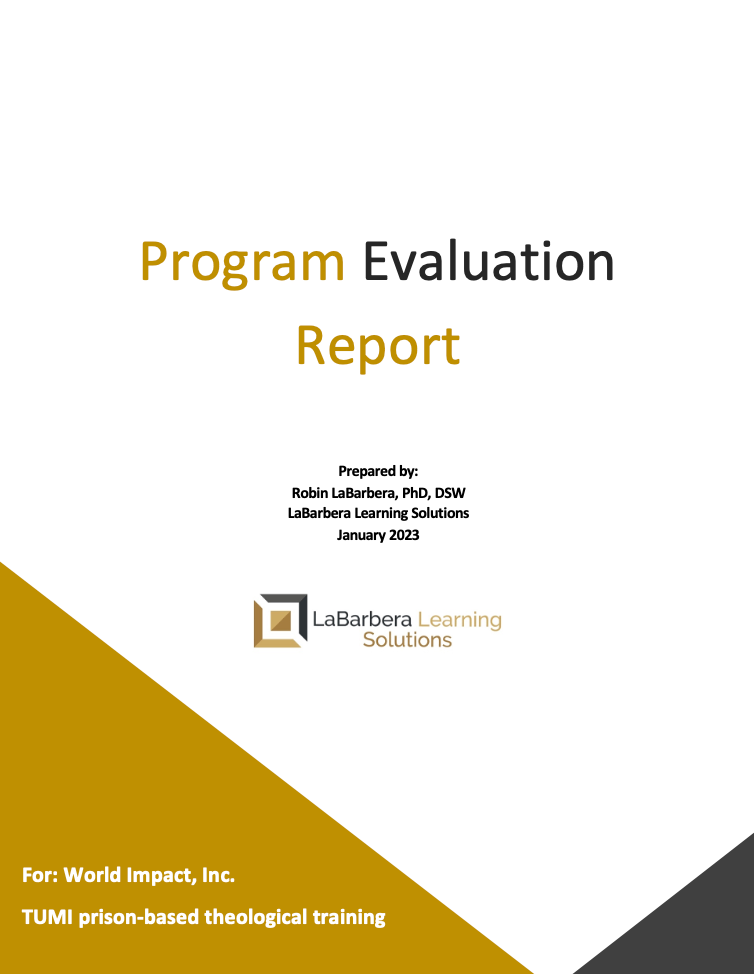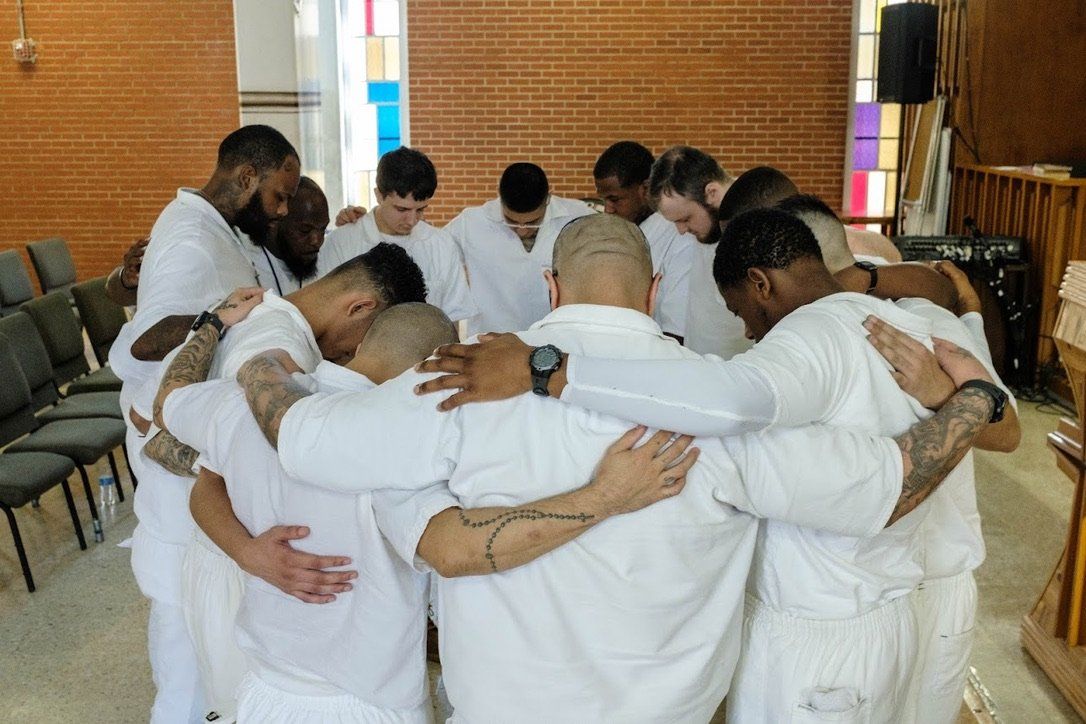Evaluation of a Prison-Based Theological Education Program
We collected data from 109 interviews with currently and formerly incarcerated individuals and from 157 surveys to understand the impact of the The Urban Ministry Institute's seminary-level education program offered in America's prisons and jails, and we video-recorded 21 interviews with men inside prison walls to collect stories of amazing transformation (a total of 287 data points).
THE PROJECT
THE NEED:
Can a prison-based theological education program prepare men and women for ministry leadership, increase the health and well-being of incarcerated individuals, improve prison culture, and assist with re-entry and recidivism prevention? The purpose of this evaluation project was to answer this question.
World Impact’s Prison Ministry program—The Urban Ministry Institute (TUMI)—is a faith-based correctional education program currently operating in 43 state and federal prisons in the United States. The evaluation was designed to assess the TUMI prison-based theological training program.
THE EVALUATION:
With the help of partners Epiphany Life Change, TUMI Topeka, and Testimony Ministries, we interviewed 109 currently and formerly incarcerated students and graduates in prisons and jails across the U.S., and with the help of partners, we administered surveys to 157 currently and formerly incarcerated participants.
We asked participants to rate their experience with TUMI in areas that are shown in the research to promote successful re-entry: Well-being, program quality, and program impact. We hear some amazing stories of transformation!
Virtually all of the TUMI participants with whom we spoke reported that participating in prison higher education had significant transformational effects on their lives, both inside and outside of prison, and on their communities.
KEY FINDINGS:
Results indicate that, far more than a seminary education, TUMI is equipping men and women for Christian leadership and service, it is creating psychological well-being, it is creating healthy thinking patterns, it is bringing self-awareness and self-respect to its participants, it is creating positive interpersonal relationships inside and outside of prison walls, and it is equipping participants with problem-solving skills, impulse control, the ability to manage negative emotions, and freedom from substance use disorders.
CONCLUSIONS:
Interview and survey results suggest that individuals who have participated in TUMI prison-based seminary training believe their education provided long-term improvements in outcomes for them, for their families, and for the correctional administration as a whole.
Positive changes can occur during periods of incarceration, as evidenced by the qualitative and quantitative evidence gathered through this research project. The men and women we interviewed and surveyed undoubtedly sought ways to redeem themselves and to achieve growth with extraordinary agency and motivation in what many would consider extremely arduous circumstances.
Positive growth in prison seems unattainable to most, but the men and women who participated in TUMI succeeded in achieving positive transformation in the context of imprisonment.
Project Deliverables
You're making a difference.
We’re here to help you prove it!
We'd love to partner with you to design a program evaluation plan, collect the data, analyze the data, and prepare professional reports.



